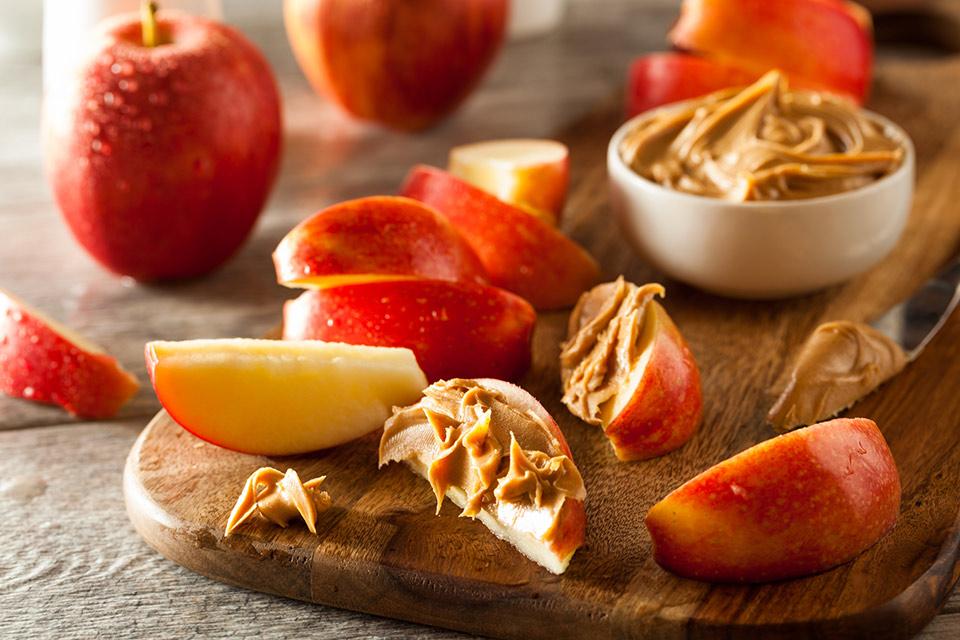Peanut butter is loaded with so many good, health-promoting nutrients, including vitamin E, magnesium, iron, selenium and vitamin B6. Research shows that people who regularly eat nuts and nut butter, including peanut butter, are less likely to develop heart disease and type 2 diabetes. Plus, peanut butter is so versatile — what other food transitions seamlessly from breakfast to lunch to dinner to snack and dessert? If the taste alone isn't enough to make you a fan, consider some of the health benefits.

Satisfy Your Appetite
Peanut butter’s combo of fiber (about two grams per tablespoon) and protein (around four grams per tablespoon) packs a powerful appetite-suppressing punch. A study in the British Journal of Nutrition found that people who ate peanuts or peanut butter for breakfast experienced a significant reduction in the desire to eat for up to 12 hours. Researchers think it might be because peanut butter is associated with an increase in the production of peptide YY (PYY), a feel-full hormone.
Slim Down
Because peanut butter helps control appetite, it might not come as a surprise that it may help you slim down. Nut eaters tend to have a healthier body mass index (BMI) than nut skippers, according to research.
Protect Your Pumper
Peanuts are an excellent source of unsaturated fats, which helps lower bad cholesterol. Women who ate at least five servings of nuts per week (one serving was defined as one ounce of nuts or one tablespoon of peanut butter) had a 44 percent reduced risk of heart disease compared to women who rarely ate nuts, suggests a Harvard University Nurse's Health study.
Give Yourself Gorgeous Skin and Hair
Peanuts contain biotin, a B vitamin necessary for healthy hair and overall scalp health. It also offers vitamin E, which nourishes the skin and protects it from the damaging UV rays.
Better Manage Type 2 Diabetes
Peanuts — and their buttery spread — are naturally low in carbs so they can help prevent blood sugar spikes. They’re a perfect quick and easy low-carb snack for people with type 2 diabetes.
Of course, you can’t spoon your way through the whole jar of this creamy spread. Any peanut butter buff knows that this pick is high in calories (nearly 100 per tablespoon), so it’s best to limit yourself to a two-tablespoon serving size. And not all PBs are created equal, so when you’re shopping look for natural varieties made without added partially hydrogenated oils (trans fats) and other suspect ingredients.
Check out these tasty ideas to see just how easy it is to incorporate the healthy spread into your diet:
- Make a healthier PB&J sandwich for breakfast, lunch or dinner. You can use any nut butter to whip up this fast and easy bite.
- Mix some peanut butter into your hot cereal for a creamy flavor kick.
- Throw a tablespoon into your smoothie for extra thickness.
- Spread peanut butter on fruit slices for a creamy and crunchy snack.
